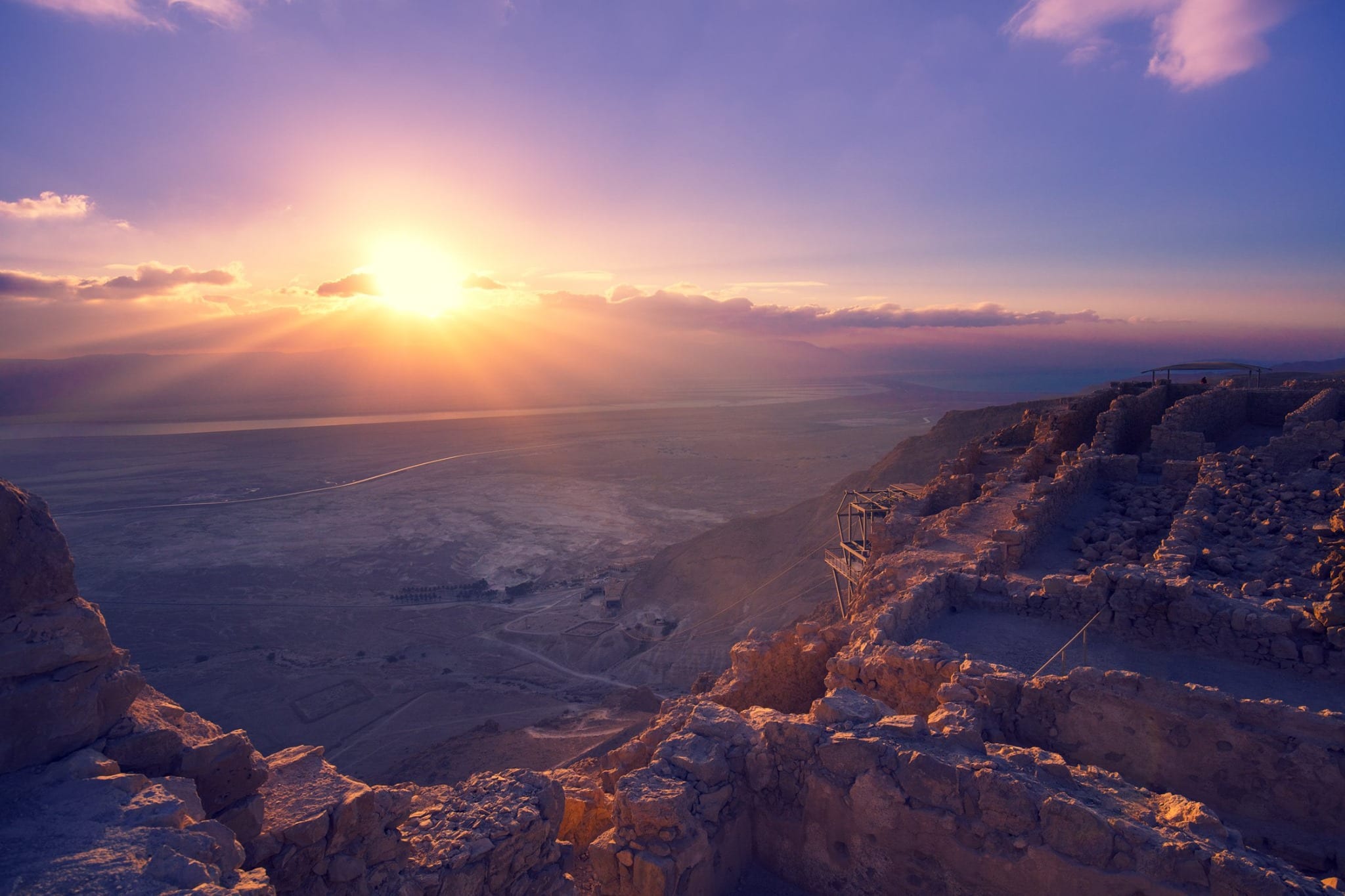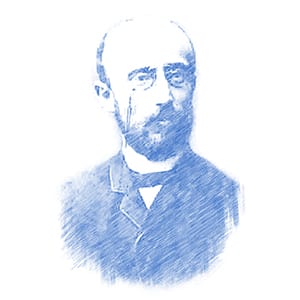
TORAH
NEVI'IM
KETUVIM
Chapter 11
Translation and Transliteration of
Listen to this chapter in Hebrew:
- Commentary
- Buy E-book
- Buy the Israel Bible
1Then Zophar the Naamathite said in reply:
אוַיַּעַן צֹפַר הַנַּעֲמָתִי וַיֹּאמַר׃
2Is a multitude of words unanswerable? Must a loquacious person be right?
בהֲרֹב דְּבָרִים לֹא יֵעָנֶה וְאִם־אִישׁ שְׂפָתַיִם יִצְדָּק׃
3Your prattle may silence men; You may mock without being rebuked,
גבַּדֶּיךָ מְתִים יַחֲרִישׁו וַתִּלְעַג וְאֵין מַכְלִם׃
4And say, “My doctrine is pure, And I have been innocent in Your sight.”
דוַתֹּאמֶר זַךְ לִקְחִי וּבַר הָיִיתִי בְעֵינֶיךָ׃
5But would that Hashem might speak, And talk to you Himself.
הוְאוּלָם מִי־יִתֵּן אֱלוֹהַּ דַּבֵּר וְיִפְתַּח שְׂפָתָיו עִמָּךְ׃
6He would tell you the secrets of wisdom, For there are many sides to sagacity; And know that Hashem has overlooked for you some of your iniquity.
ווְיַגֶּד־לְךָ תַּעֲלֻמוֹת חָכְמָה כִּי־כִפְלַיִם לְתוּשִׁיָּה וְדַע כִּי־יַשֶּׁה לְךָ אֱלוֹהַ מֵעֲוׂנֶךָ׃
7Would you discover the mystery of Hashem? Would you discover the limit of the Almighty?
ha-KHAY-ker e-LO-ha tim-TZA IM ad takh-LEET sha-DAI tim-TZA
זהַחֵקֶר אֱלוֹהַ תִּמְצָא אִם עַד־תַּכְלִית שַׁדַּי תִּמְצָא׃
![]() 11:7 Would you discover the mystery of Hashem?
11:7 Would you discover the mystery of Hashem?
Zophar questions Iyov’s insistence that he is innocent, suggesting that Iyov is perhaps not as pure as he thinks he is, since man cannot comprehend Hashem’s mind nor his desires of us. Even Moshe, the greatest prophet of all time, was denied his request to fully comprehend the ways of Hashem. After the sin of the golden calf, Moshe prays for the people and seeks closeness to God. Sensing that this was a time of mercy, he pleads with Hashem to let him understand His ways, and requests of Him: “Let me behold Your presence” (Exodus 33:18). God’s response, however, is, “You cannot see My face, for man may not see Me and live” (ibid. verse 20). The Sages understand this request to see God’s face as a metaphor for Moshe’s plea to understand Hashem. In fact, the Sages of the Talmud (Berachot 7a) suggest that Moshe was specifically seeking the answer to the question of theodicy, wondering why bad things happen to good people and vice versa. This is indeed the question that bothers Iyov throughout his book, and continues to trouble us for eternity. However, as Moshe is told, we cannot comprehend the ways of God and might never understand the answer to this question as long as we are living.
8Higher than heaven—what can you do? Deeper than Sheol—what can you know?
חגָּבְהֵי שָׁמַיִם מַה־תִּפְעָל עֲמֻקָּה מִשְּׁאוֹל מַה־תֵּדָע׃
9Its measure is longer than the earth And broader than the sea.
טאֲרֻכָּה מֵאֶרֶץ מִדָּהּ וּרְחָבָה מִנִּי־יָם׃
10Should He pass by, or confine, Or call an assembly, who can stop Him?
יאִם־יַחֲלֹף וְיַסְגִּיר וְיַקְהִיל וּמִי יְשִׁיבֶנּוּ׃
11For He knows deceitful men; When He sees iniquity, does He not discern it?
יאכִּי־הוּא יָדַע מְתֵי־שָׁוְא וַיַּרְא־אָוֶן וְלֹא יִתְבּוֹנָן׃
12A hollow man will get understanding, When a wild ass is born a man.
יבוְאִישׁ נָבוּב יִלָּבֵב וְעַיִר פֶּרֶא אָדָם יִוָּלֵד׃
13But if you direct your mind, And spread forth your hands toward Him—
יגאִם־אַתָּה הֲכִינוֹתָ לִבֶּךָ וּפָרַשְׂתָּ אֵלָיו כַּפֶּךָ׃
14If there is iniquity with you, remove it, And do not let injustice reside in your tent—
ידאִם־אָוֶן בְּיָדְךָ הַרְחִיקֵהוּ וְאַל־תַּשְׁכֵּן בְּאֹהָלֶיךָ עַוְלָה׃
15Then, free of blemish, you will hold your head high, And, when in straits, be unafraid.
טוכִּי־אָז תִּשָּׂא פָנֶיךָ מִמּוּם וְהָיִיתָ מֻצָק וְלֹא תִירָא׃
16You will then put your misery out of mind, Consider it as water that has flowed past.
טזכִּי־אַתָּה עָמָל תִּשְׁכָּח כְּמַיִם עָבְרוּ תִזְכֹּר׃
17Life will be brighter than noon; You will shine, you will be like the morning.
יזוּמִצָּהֳרַיִם יָקוּם חָלֶד תָּעֻפָה כַּבֹּקֶר תִּהְיֶה׃
18You will be secure, for there is hope, And, entrenched, you will rest secure;
u-va-takh-TA kee YAYSH tik-VAH v'-kha-far-TA la-VE-takh tish-KAV
יחוּבָטַחְתָּ כִּי־יֵשׁ תִּקְוָה וְחָפַרְתָּ לָבֶטַח תִּשְׁכָּב׃
![]() 11:18 You will be secure, for there is hope
11:18 You will be secure, for there is hope

Achad Ha’am (1856-1927)
In Jewish culture, hope is considered one of the most potent tools at humanity’s disposal for fulfilling its mission of perfecting the world. Asher Ginsberg, better known by his pen-name, Achad Ha’am (literally, “One of the People”), was the 19th-20th century founder of the movement known as “Cultural Zionism.” He envisioned the upcoming state as a Jewish spiritual center; not merely a State of Jews, but a Jewish State. On this topic, he writes: “The national self of a nation is the link between its past and future. Memories on the one hand, and hope on the other. Our prophets, and later our sages, implanted in the Jew hope in the future, and to the Jew this was not a fantastic hope, but a reality. And this was the best spiritual food to sustain our life. Without this hope, the Torah alone could not have preserved us.” With these beautiful words, Achad Ha’am illustrates how hope and Torah are inherently, and eternally, intertwined.
19You will lie down undisturbed; The great will court your favor.
יטוְרָבַצְתָּ וְאֵין מַחֲרִיד וְחִלּוּ פָנֶיךָ רַבִּים׃
20But the eyes of the wicked pine away; Escape is cut off from them; They have only their last breath to look forward to.
כוְעֵינֵי רְשָׁעִים תִּכְלֶינָה וּמָנוֹס אָבַד מִנְהֶם וְתִקְוָתָם מַפַּח־נָפֶשׁ׃






